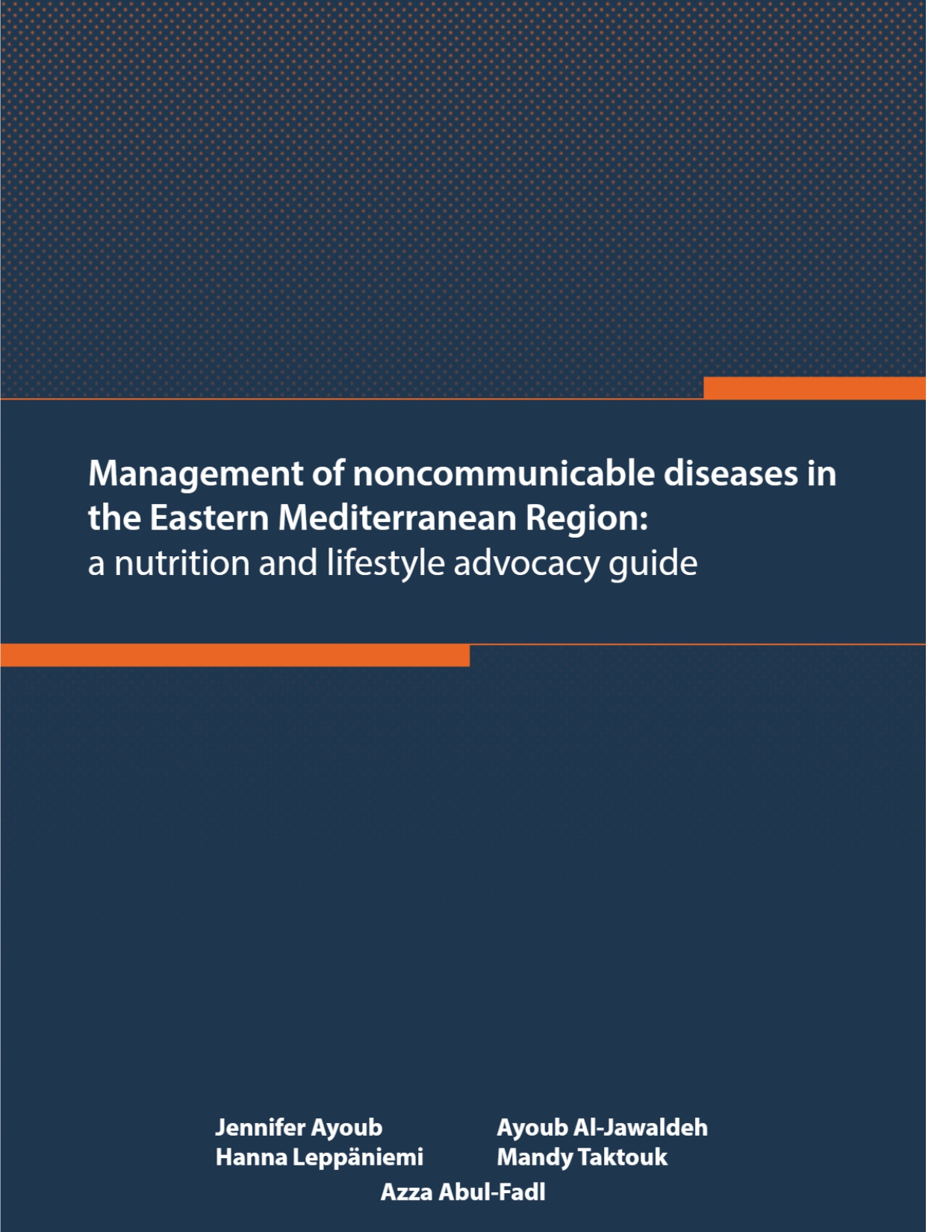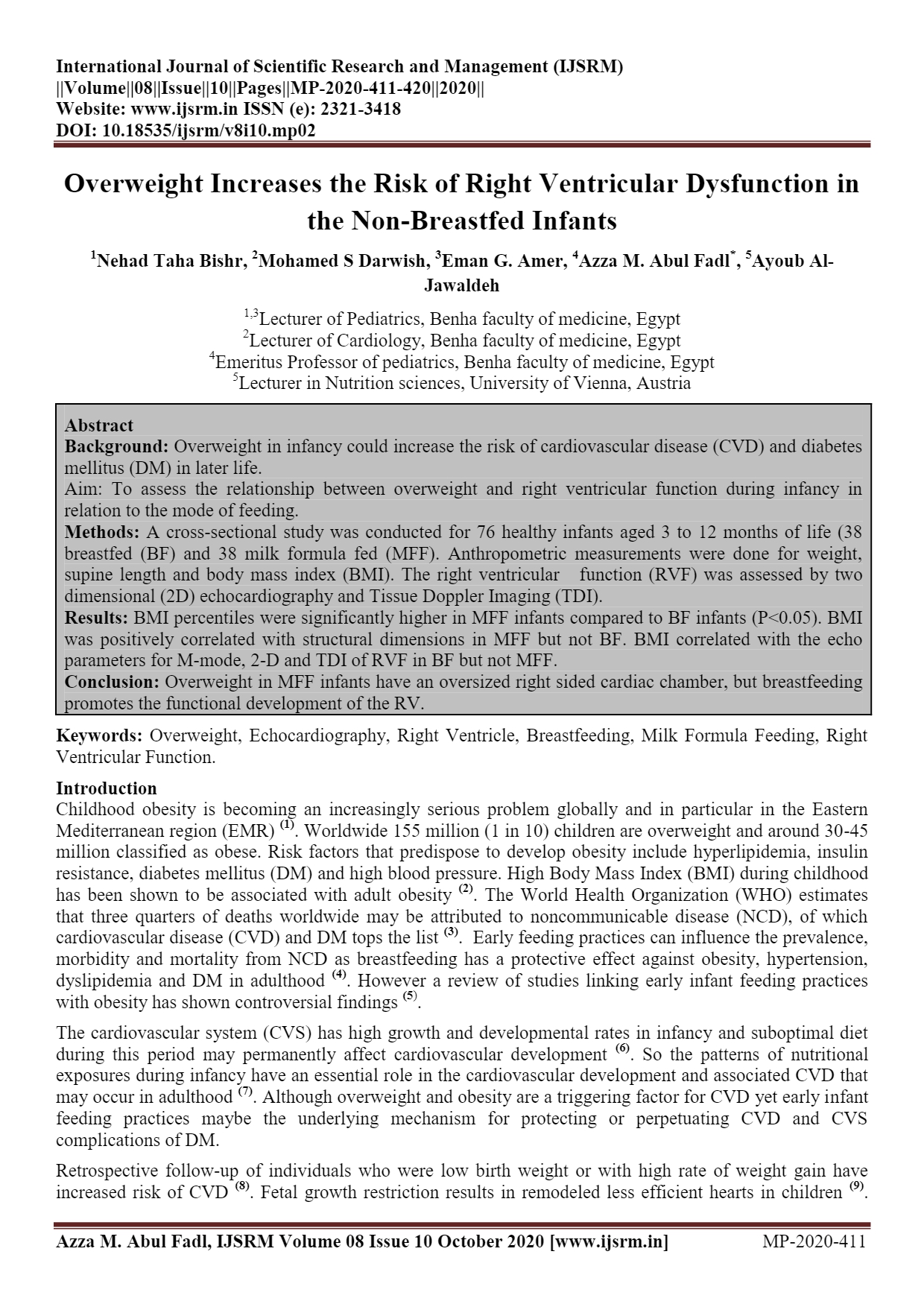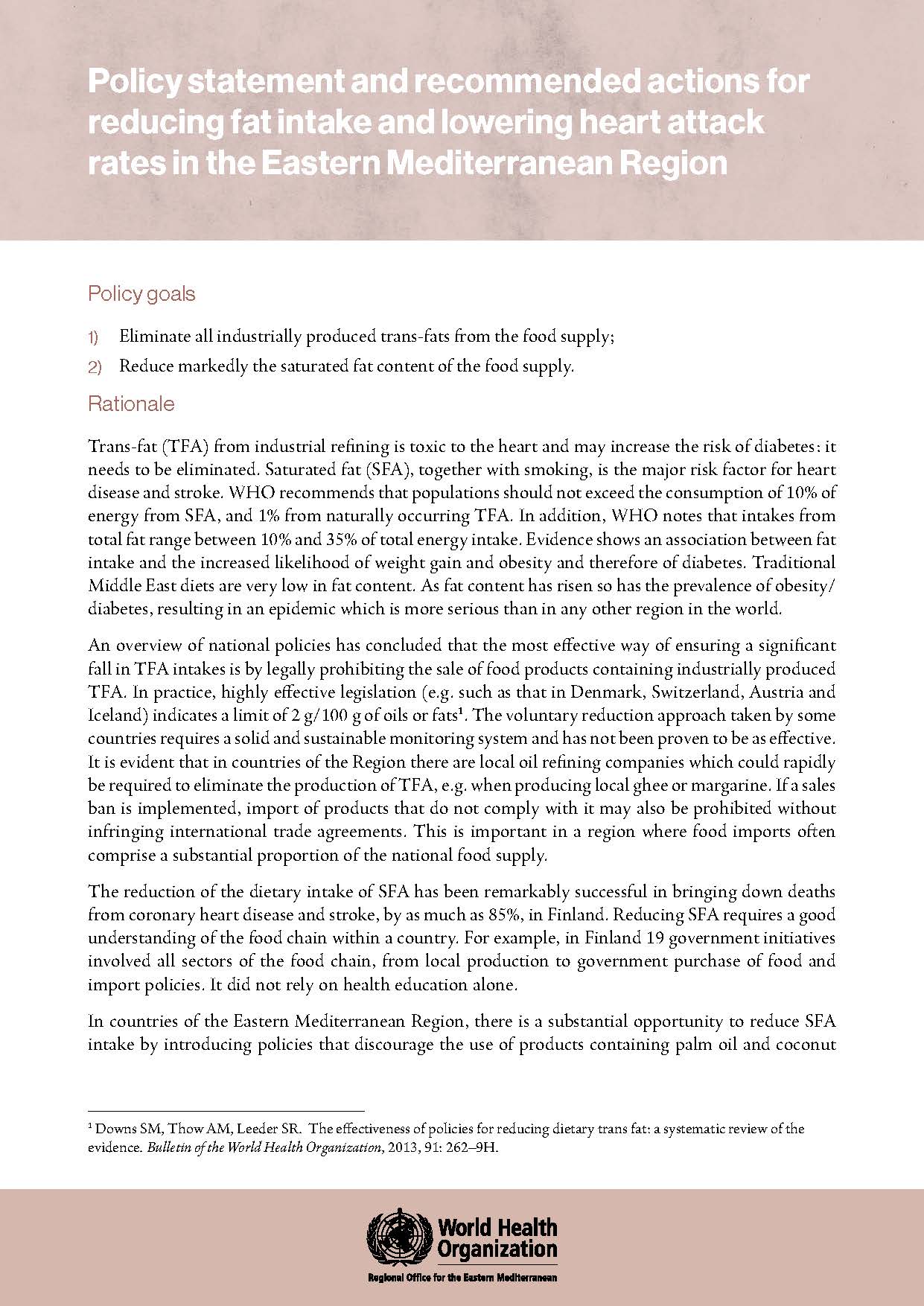
Management of noncommunicable diseases in the Eastern Mediterranean Region: a nutrition and lifestyle advocacy guide
Publication date: 2022
This advocacy guide, developed by WHO EMRO, provides evidence-based recommendations for the management of NCDs through healthy diet and lifestyle choices. It is designed to address the unique regional characteristics of the Eastern Mediterranean Region. The guide is intended for both healthcare professionals working with NCD patients and individuals living with NCDs. The recommendations of this advocacy guide can also serve as general guidance to healthy diet and lifestyle even for individuals without NCDs.

Non-conjugated-industrially-produced-trans fatty in Lebanese foods: the case of Elaidic and Linolelaidic Acids
Publication date: 2021
The intake of industrially-produced trans-fatty acids is associated with an increased risk of heart attacks and death from coronary heart disease. This study aims to determine industrially-produced trans-fatty acids distribution of Lebanese traditional foods, especially regarding Elaidic acid (EA; 9t18:1) and Linolelaidic acid (LEA; 9t12t18:2). The findings show that categories with the highest industrially-produced trans-fatty acids levels included Riz a dajaj, Shawarma Lahma, Pain au lait, English cake, chocolate wafers, and margarines. The Lebanese government and ministries should strive to raise public awareness about the issue and lobby for implementing anti-industrially-produced trans-fatty acids laws either on the level of national industries or on the level of food products importation.

Assessment of industrially produced trans fatty acids in traditional dishes, Arabic sweets, and market food products and its risks on non-communicable diseases in Lebanon
Publication date: 2021
Industrially produced trans-fatty acids are a major dietary contributor to noncommunicable diseases worldwide. The main objectives of this article are to: (1) Assess industrially produced trans fatty acids levels in frequently consumed traditional dishes, Arabic sweets, processed foods, butter, and margarine in Lebanon. (2) Establish a steppingstone for required policies and regulations to mandate limits of trans fatty acids levels in oils and foods imported or produced locally. The findings show that about 93% of the products tested in Lebanon, between 2019 and 2021, met the World Health Organization recommendations, while about 7% exceeded the limit.

Ultra-processed foods are the major sources of total fat, saturated and trans-fatty acids among Tunisian preschool and school children: A cross-sectional study
Publication date: 2021
Excessive intake of fat and fatty acids is associated with major health hazards such as obesity or chronic diseases. The aim of this study was to provide the first data on total fat, saturated fatty acids and trans fatty acids intakes and their major food sources in Tunisian children. The study concludes that the implementation of a relevant strategy for fat reduction, especially from ultra-processed foods which are considered low nutrient energy-dense products, is needed to promote health among children and prevent diet-related chronic diseases.

A systematic review of trans fat reduction initiatives in the Eastern Mediterranean Region
Publication date: 2021
High intakes of trans fatty acids (TFA), particularly industrially-produced TFA, are implicated in the etiology of cardiovascular diseases, which represent the leading cause of mortality in the Eastern Mediterranean Region (EMR). This systematic review aims to document existing national TFA reduction strategies in the EMR, providing an overview of initiatives that are implemented by countries of the Region, and tracking progress toward the elimination of industrially-produced TFA. This study showed that further action is needed to initiate TFA reduction programs in countries that are lagging behind, and to ensure rigorous implementation and evaluation of ongoing programs.

Passive smoking is associated with risk of early onset of cardiac dysfunction
Publication date: 2020
Secondhand smoke exposes infants and young children to many short- and long-term hazards. In adults, passive smoking was found to result in left sided diastolic dysfunction. This study aims to identify changes in the structure and function of the right side of the heart that can be influenced by exposure of infants to secondhand smoke. Findings show that formula milk fed infants are at risk of right sided diastolic dysfunction while early breastfeeding seems to protect the heart from the hazards of secondhand smoke.

Overweight increases the risk of right ventricular dysfunction in the non-breastfed infants
Publication date: 2020
Overweight in infancy could increase the risk of cardiovascular disease and diabetes mellitus in later life, however the mechanisms need to be investigated. This study aims to assess the relationship between overweight and right ventricular function during infancy in relation to the mode of feeding. Findings show that overweight in milk formula fed infants increases right sided cardiac dimensions but in breastfed infants the functional component of the right ventricular functions is increased.

Echocardiography of the right ventricle in infancy: do early feeding practices make a difference?
Publication date: 2020
It is important to understand the role of various feeding practices during infancy on the development of the cardiac structures, to intervene early with the prevention of cardiovascular disease. This study aims to compare the structures and functions of the right side of the heart in exclusively breastfed and formula-fed babies in the first year of life. Findings show that exclusive breastfeeding in infancy supports higher performance of the right side of the heart in infancy. The results also suggest that early developmental changes in the right side of the heart can be influenced by the feeding patterns in infancy.

Fat intake reduction strategies among children and adults to eliminate obesity and noncommunicable diseases in the Eastern Mediterranean Region
Publication date: 2018
Noncommunicable diseases (NCDs) are the leading cause of mortality globally with an estimated 39.5 million deaths per year (72% of total death) in 2016, due to the four major NCDs: cardiovascular diseases, cancers, chronic respiratory diseases and diabetes. Unhealthy diet – including excess intake of saturated fatty acids and trans fatty acids – is a major contributor to the NCD burden. This paper discusses the NCD burden and estimates the saturated fatty acids and trans fatty acids intake and their sources in the countries of the Region. It also reviews the evidence on health impacts of reducing saturated fatty acids and trans fatty acids intake, introduces regional strategies to reduce fat intake and provides examples of actions taken by countries.

Policy statement and recommended actions for reducing fat intake and lowering heart attack rates in the Eastern Mediterranean Region
Publication date: 2014
This policy statement was published in 2014 with the goal of identifying the priority actions for Member States to eliminate all industrially produced trans-fats from the food supply as well as to reduce markedly the saturated fat content of the food supply. The suggested actions are divided into three phases which span over a period of two-years from 2014 to 2015.



